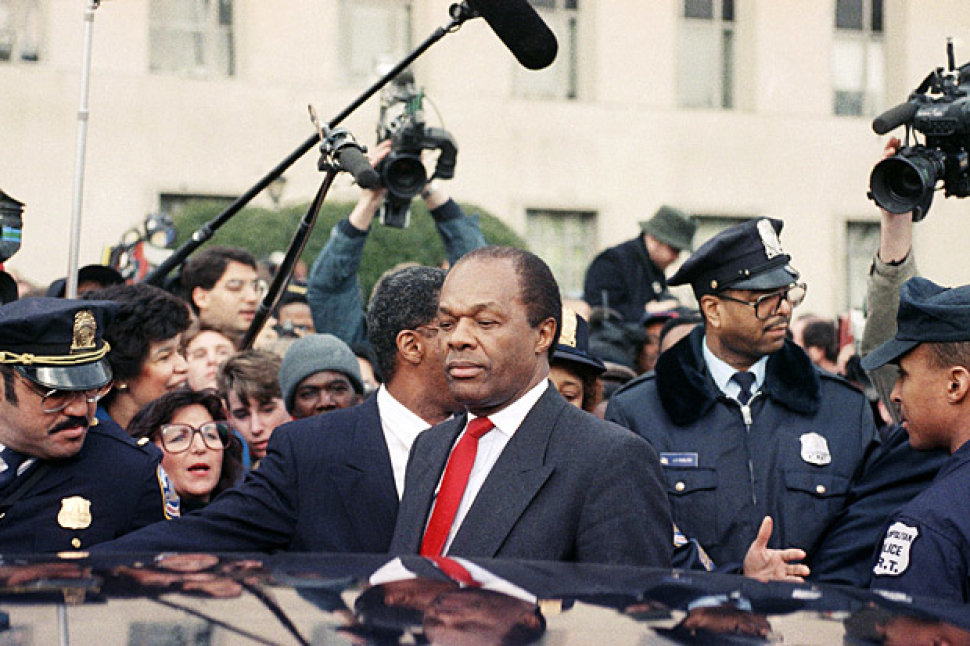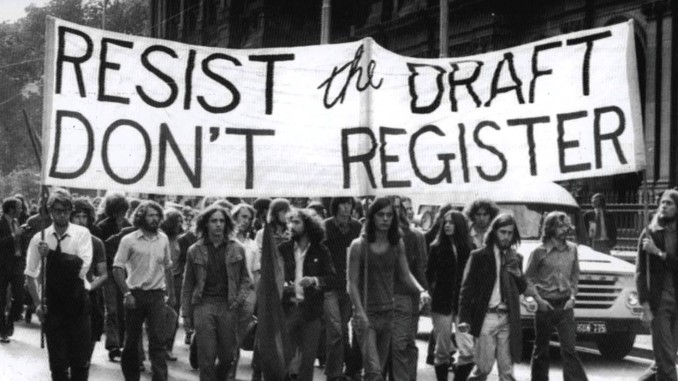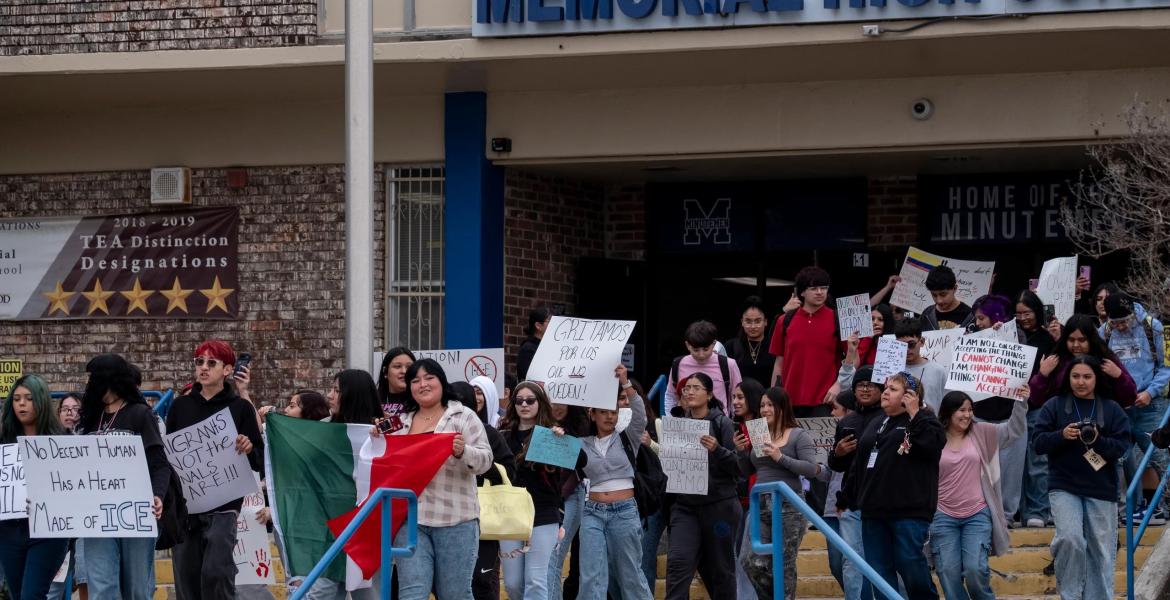SAN ANGELO, TX - For this week in history, prohibition took effect across the U.S., a child cannibal was executed, Hitler retreated inside his bunker, the Persian War started and more. Here are the events we chose to highlight.

January 16, 2017
1919 - Prohibition Takes Effect
As the voices supporting the prohibition of alcohol began resonating all over the country, Congress decided to establish the 18th Amendment. This prohibited the manufacturing, transporting and selling of alcohol. This happened after advocates from all over the country protested and warned against the negative effects of alcohol.
Congress then went on to pass the Volstead Act, which provided the government with the means to enforce the amendment. This caused a rise of bootlegging and the establishing of illegal drinking spots, or speakeasies as they were better known. Prohibition ended in 1933 after Congress repealed the amendment.
1936 - Moon Manic Executed
Albert Fish, aka the Moon Manic, was executed at Sing Sing prison after admitting he had viciously murdered 10-year-old Grace Budd, cut her body up with a saw and ate her flesh. Six years later, he sent Grace’s mother a letter detailing the vicious torture her daughter endured. Police were able to trace the letter back to him.
After being examined, a psychiatrist determined Fish was obsessed with sadomasochism. He had caused physical pain to himself, and had even asked his own kids to hurt him with paint stirrers and hair brushes. Fish’s obsession with cannibalism is what led him to commit this heinous crime. After he was arrested, he confessed to the murders of several other children he claimed to have eaten as well.
1945 - Hitler Descends into His Bunker
With the war entering its last stage and the German forces losing soldiers and military control, Hitler decided to retreat into his bunker, which was situated beneath the chancellery headquarters where he remained for 105 days.
The bunker had 18 rooms and was completely self-sufficient. There, he lived with his wife of a few hours, Eva Braun, with whom he committed suicide. As the Russians' arrival seemed imminent, Hitler preferred to commit suicide over escape to Berchtesgaden where he owned a home. Hitler and Eva took cyanide pills, but he also shot himself for good measure.
1991 - Persian Gulf War Begins
As Iraqi forces refused to honor the U.N deadline to leave Kuwait after a 5-month occupation, the U.S and 32 other nations worked together to launch a series of air strikes meant to force Iraq out of Kuwait.
At approximately 4:30 pm EST the first fighter aircraft was launched from Saudi Arabia. Operation Desert Storm was announced at the White House at 7 p.m. that day.
During the next six weeks, the coalition continued to send air strikes that forced Saddam Hussein’s forces to surrender, retreat to Iraq or be killed. The war left 125 American soldiers dead and 21 missing in action. President Bush called a cease fire on Feb. 28, and Iraq pledged to honor all future U.N Peace Terms.

January 17, 2017
1950 - Boston Thieves Pull Off Historic Robbery
Eleven men robbed the Brinks Armored Car depot in Boston, Massachusetts, making it the biggest heist in U.S. history during that time. The crime had been an elaborate plan that included 18 months of surveillance and the theft of the depot’s alarm system plans.
The robbers entered the depot wearing similar uniforms worn by the employees and Halloween masks. Nearly $2.7 million was taken during the heist. No one was hurt during that time, and very few clues were left behind.
The men had agreed to hide the money for six years until the statute of limitations ran out on the crime. One of criminals, Joseph “Specs” O’Keefe, went to prison after being convicted of another burglary. After he became restless and threatened to expose the rest of the group, a hit man was hired to silence him. The attempt failed and O’Keefe revealed the name of the other thieves.
The arrests were made shortly before the statute of limitations expired, and eight of the thieves were sentenced to life in prison, while two others died before they went to trial. Much of the money was never found and is rumored to be hidden in hills north of Grand Rapids, Minnesota.
1953 - Corvette Unveiled at GM Motorama
The first prototype of the Corvette was shown at the auto show, and the first model completed on June 30 of the same year. The model featured a white exterior and red interior in an all fiberglass body starting at $3,500.
The Corvette was not as popular as GM had hoped and failed to compete with Ford’s Thunderbird. The hiring of Zora Arkus-Duntov as the new designer of the car, however, transformed the future of the Corvette forever. It became a prominent figure in the racing circuit, and its popularity soared, especially after its engine was designed to have greater horsepower.
The 500,000th corvette was built in 1977, the 1,000,000th mark was hit in 1992.
1994 - Earthquake Rocks Los Angeles
A 6.7 magnitude quake shook the residents of Los Angeles’ Northridge neighborhood. The earthquake caused $20 billion in damage and left 54 people dead.
Authorities named two reasons they believe accounted for the relatively low death count of the earthquake. When it began, at 4:31 a.m., most people were at home in bed, which meant fewer individuals were traveling on the freeways. The roads were also severely damaged. Most buildings had also been either strengthened or built to comply with the safety regulations that helped the buildings stay upright and reduce the amount of damage.

January 18, 2017
1919 - Post-World War I Peace Conference Begins
The leaders of the allied powers of France, Great Britain, Italy and the United States met to discuss the terms for the final negotiations of World War I. President Wilson tried to ensure that Germany wasn't treated too harshly in the negotiations that lasted six months. France and Great Britain were adamant in ensuring that Germany would be punished.
This led to an increased resentment from Germany to the allied powers, which Hitler used to lead World War II. The treaty was signed on June 28th of that year, which was also the five-year anniversary of the fatal shot that ended the life of Austrian Archduke Franz Ferdinand and began the war.
1990 - Mayor Barry Gets Caught with Crack
Marion Barry got caught smoking crack outside of Vista International Hotel in downtown D.C. and reportedly yelled, “The bitch set me up! The bitch set me up!” as he was arrested. This was in reference to Rahsheeda Moore, who had agreed to set up Barry in exchange for a reduced drug sentence.
After serving six months for possession, he reentered D.C politics as a city council member and was reelected to mayor once again in 1994. Barry retired in 1999, but ran for city council once again in 2004.
1975 – Barry Manilow Achieves 1st Pop Hit
The song “Mandy” became the first number one hit of Barrow Manilow's career. He went on to sell 75 million records overall.
Manilow began his music career as the piano player of Bette Midler, but moved on to become her musical director and eventually arranged and orchestrated her Divine Miss M album. He soon become Dionne Warwick’s opening act, and was later recognized as the top Adult Contemporary chart artist of all time by Billboard and Radio & Records.

January 19, 2017
1809 – Edgar Allen Poe Is Born
The legendary poet, author and literary critic was born in Boston, Massachusetts. An orphan by the age of three, Poe was raised by his godfather John Allan.
He went to school in England and then attended the University of Virginia in 1826. After a falling out with his godfather, he went on to serve in the U.S Army for two years. After earning an appointment to West Point, Poe had another falling out with his godfather and was kicked out of the Academy.
Poe died at the age of 40 after a life of grief and alcoholism following the death of his wife and cousin, Virginia Clemm. Poe died shortly after getting engaged to a former flame, but was found drunk and incoherent in a gutter and he died shortly thereafter.
He was considered a harsh critic, but known all over the world for his literary works. “The Raven,” “The Fall of the House of Usher” and “The Tell-Tale Heart” are works that immortalized his poetic talents.
1915 – Britain Suffers First Air Raid of WW1
Germany began its air strikes aboard Zeppelin Aircraft in Great Yarmouth and King’s Lynn. Three planes had originally been sent out to deliver bombs, but only two were able to complete their missions. The third plane was forced to turn back after experiencing mechanical problems.
The Zeppelin was developed by German inventor Ferdinand Graf von Zeppelin in 1900 and was the largest airship constructed at that time.
1974 – Notre Dame Beats UCLA To End 88-Game Winning Streak
The UCLA Bruins achieved a streak that began after their last loss on January 23, 1971. The team was ranked 1st place in the country. The number two team, Notre Dame, however, surprised UCLA and ended the game with a 71 to 70 score.
UCLA went on to beat Notre Dame the following week in a return game 94 to 75. The Bruins broke the previous collegiate record for consecutive wins after winning their 61st victory over Notre Dame.
1999 - First Cyber Stalker Charged in California
The first state to pass a cyberstalking law, California charged its first suspect in 1999. Gary Dellapenta had reportedly stalked a woman online and then placed ads saying she had a rape fantasy. He posted her address and the way to disarm her alarm system.
The woman was surprised after six men showed up to her house saying they were there to rape her. She was even forced to place notes on her door explaining the ads were fake. Dellapenta then sent out new ads saying the note was a part of the fantasy. He was finally caught after the woman’s father answered the ad and traced the origin.
Dellapenta allegedly did this because the woman had refuted his romantic advances. He was sentenced to six years in prison and charged with one count of stalking and three counts of solicitation of sexual assault.

January 20, 2017

1945 – FDR Begins 4th Term
The only president to be elected for more than two terms, Franklin Delano Roosevelt, began his final term on this day in 1945. FDR led the country out of the Great Depression, and his words, be a “great arsenal of democracy,” helped the allied powers during WWII.
Three months after his inauguration, FDR passed away, and that prompted Congress to pass the 22nd Amendment, which limited the president’s terms to only two in 1947.
1981 – Iran Hostage Ends
After 444 days, the 52 hostages held at the U.S. embassy in Teheran, Iran were released. The situation had escalated after militant Iranian students became outraged after the ousted Shah of Iran had been granted permission to travel to New York City for medical treatment.
The Ayatollah Khomeini, Iran’s political and religious leader, took over the hostage situation and refused to release any of the hostages, even after the U.N Security canceled and demanded an end to the crisis.
The Ayatollah later released all non-U.S captive and any female and minority Americans whom they considered oppressed by the U.S government as well. They were released after President Ronald Reagan was sworn in. Almost $8 million in Iranian assets were unfrozen as part of the negotiation.
1993 – Audrey Hepburn Dies
The native-born Belgium actress died at the age of 63 after battling colon cancer. The beloved movie star had faced grief and war before her rise to stardom. Hepburn and her mother lived in the Netherlands when it was invaded by the Nazis. During the war, an uncle and cousin were executed and her brother was interned in a Nazi labor camp.
After the war, she returned to England and began her career as a chorus girl and dancer. She was then selected to appear on Broadway and began her career in American movies.
Her roles in Roman Holiday, Sabrina, Funny Face, Love in the Afternoon, My Fair Lady, Robin and Marian, and Breakfast at Tiffany’s would immortalize her forever. After retiring, she continued her work with UNICEF.

January 21, 2017
1793 – King Louis XVI Executed
As the French people rebelled against the harsh economic crisis felt, the king was unsuited to deal with the problems, and he refused to listen to those who insisted that, in order to preserve his monarchy, he had to be willing to change.
The hatred for the king and his wife, Queen Marie Antoinette, grew to the extreme, and they were forced to flee to Austria. They were captured, and the king was forced to accept a constitution that stripped most of his power away.
After his plans to overthrown the constitution were revealed, he was sentenced to death and killed by a guillotine. Marie Antoinette was convicted of treason and executed nine months later in the same fashion.
1977 – President Carter Pardons Draft Dodgers
During the Vietnam War, approximately 100,000 draft eligible men left the country to avoid serving in the war. Nearly 90 percent of them fled to Canada where they were eventually welcomed.
After the war, 517 men were accused of violating the draft laws that could mean a prison sentence of forced military service. During his presidential campaign, Jimmy Carter promised a general pardon in order to help the country move on from the war that had divided so many people.
Carter made true on his promise and granted the pardons surrounded by a lot of controversy. Veterans were upset that these men who had been unpatriotic in their eyes received no punishment. Anti-ear demonstrators did not think it was fair the parson did not apply to demonstrators who had been prosecuted during the war.
2009 – Toyota Passes GM As Planet’s Biggest Car Maker
After having 8.97 million vehicle sales in 2008, Toyota surpassed GM’s in the number of vehicles sold. GM went on to sell 8.36 million vehicles in 2008.
The American company was created in 1908 in Flint, Michigan, which would eventually surpass Ford as the world’s biggest automaker in the 1930s. Toyota began building cars in the 1930s, and began exporting to the United States in the 1950s.
The small size and fuel efficient engines made the Toyota brand a popular choice, especially during the oil crisis in the 1970s.
[[{"fid":"27006","view_mode":"default","type":"media","attributes":{"alt":"(Photo Courtesy of Murderpedia)","height":"321","width":"483","style":"width: 483px; height: 321px;","class":"media-element file-default"}}]]
January 22, 2017
1973 – Roe v. Wade
Considered one of the most important decisions made by the Supreme Court regarding women’s reproductive rights, Roe v. Wade was a very controversial decision. This ruling would go on to decriminalize abortion.
By the beginning of the 20th century, all states had laws against abortion but were rarely enforced. For many people, the topic of abortion was considered a matter of morality, not something that needed to be regulated by the federal government. The topic of abortion remains a hot topic as both pro-life and pro-choice advocates make their case.
1998 - Unabomber Sentenced To Death
Ted Kaczynski, also known as the Unabomber, was sentenced to life in prison without the possibility of parole. His bombs killed three people and injured more than 20. Kaczynski targeted universities, but was charged with placing one on an American Airlines flight in 1979, and to the home of the United Airlines president in 1980.
Leaving behind little physical evidence and very few clues regarding his identity, the UNABOM Task Force was created and the media nicknamed Kaczynski the Unabomber. He continued to live in anonymity until 1995 when he published a 35,000-word manifesto that claimed him to be the Unabomber. Kaczynski’s brother, David Kaczynski, recognized his brother’s writing style and turned him in. Police were able to locate evidence in his home that linked Kaczynski to the bombings and the manifesto.
2008 – Heath Ledger Dies of Accidental Overdose
The star of The Dark Knight, 10 Things I Hate About You, Casanova and others tragically passed away after accidently overdosing on prescription medications.
Ledger's masseuse and housekeeper discovered him unconscious on the floor of his SoHo apartment in New York City. The media went on to speculate that Ledger suffered from substance abuse, but a medical examiner's report clarified it had been, in fact, an accidental overdose. The 28-year-old Australia native is buried in his hometown of Perth.
Note: Information in this article comes from History.com.
Subscribe to the LIVE! Daily
Required






Post a comment to this article here: